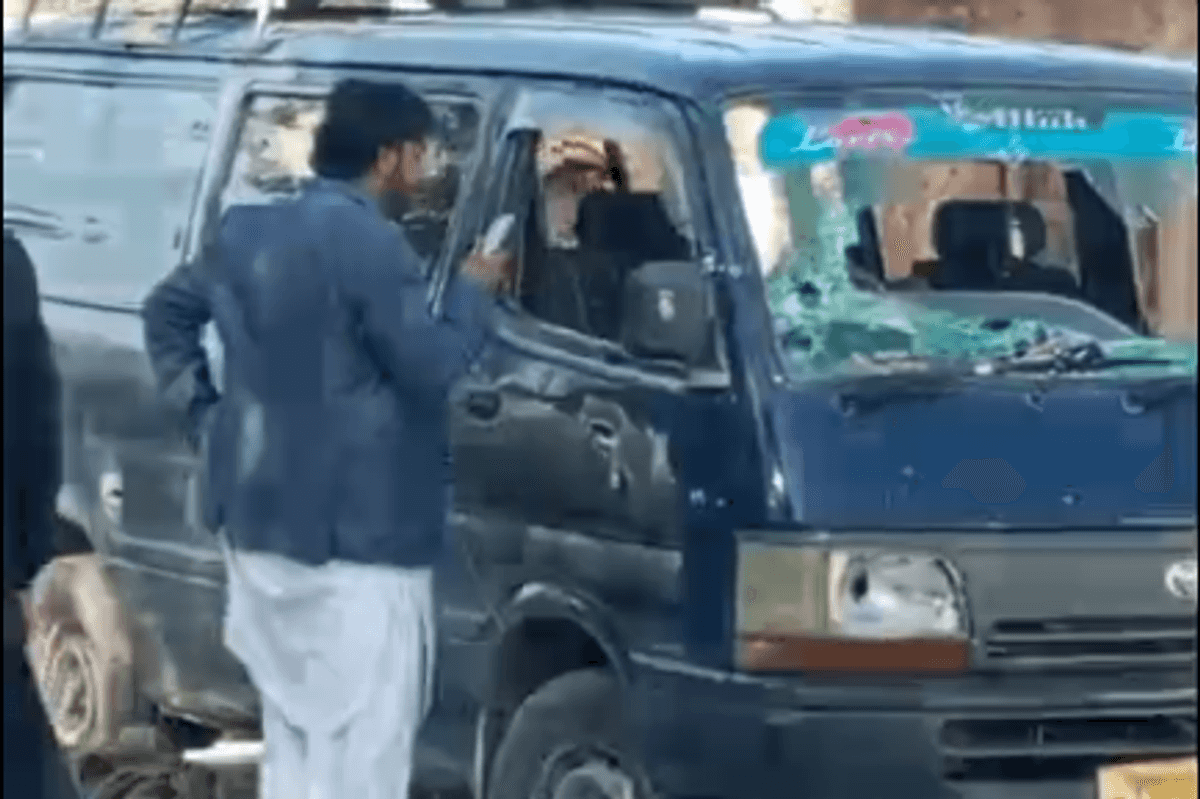Death toll from gun attacks in northwest Pakistan rises to 42
Shootout targets passengers in buses traveling from Parachinar to Peshawar in area marred by sectarian violence
News Desk
The News Desk provides timely and factual coverage of national and international events, with an emphasis on accuracy and clarity.

The death toll from Thursday's apparent sectarian attacks in northwestern Pakistan rose to 42, an official said.
Gunmen targeted passenger vehicles traveling from Parachinar to Peshawar. The shootings, lasting around 30 minutes in the Ochat area in the remote Kurram Agency, claimed the lives of women, children, and other civilians.
Police officer Kaleem Shah confirmed the death toll to Nukta on Friday, adding that 17 others were injured. He said a police constable was among those injured.
Speaking to Nukta a day earlier, Deputy Commissioner Javed Ullah Mehsud said that while past tensions in the area involved Shia-Sunni conflicts, the targeting of civilians on the road suggests a potential act of terrorism.
"We are currently engaged in the operation," he said. "Once the operation concludes, we will examine all aspects and prepare a detailed report to determine the final facts."
The attacks come just weeks after the main route in the area reopened following a 22-day closure due to previous violence.
Pakistan's President Asif Ali Zardari and Prime Minister Shehbaz Sharif condemned the attack.
'Not the first such attack'
Local journalist Adnan Haider told Nukta that the attack was "clearly sectarian", citing a series of similar incidents in the past. “This isn’t the first such attack,” Haider noted, referencing an Oct. 12 incident where five people were killed.
The Parachinar-Thall road remained closed for more than three weeks after that attack, leading to a peace march before convoys resumed.
“Another incident like this shows the government’s failure to act despite repeated violence—it’s truly shameful,” he added.
History of sectarian violence
This latest attack has added to the toll of a longstanding conflict that has claimed dozens of lives in recent months.
However, sectarian violence has plagued Kurram, a tribal district bordering Afghanistan, for years. Formerly a semi-autonomous area, the region has a history of bloody confrontations between the Shia and Sunni tribes that have claimed hundreds of lives over the years.
In the past two months, September and October, 53 people, including women and children, have died in days-long sectarian clashes in the district.
Following an earlier round of clashes, in July, the Human Rights Commission of Pakistan (HRCP) had urged the Khyber Pakhutnkhwa government to ensure that the ceasefire being brokered then holds.
"All disputes, whether over land or born of sectarian conflict, must be resolved peacefully through negotiations convened by the KP government with all stakeholders represented,” it said in a statement on July 29.
* Additional reporting by Kamran Ali







Comments
See what people are discussing